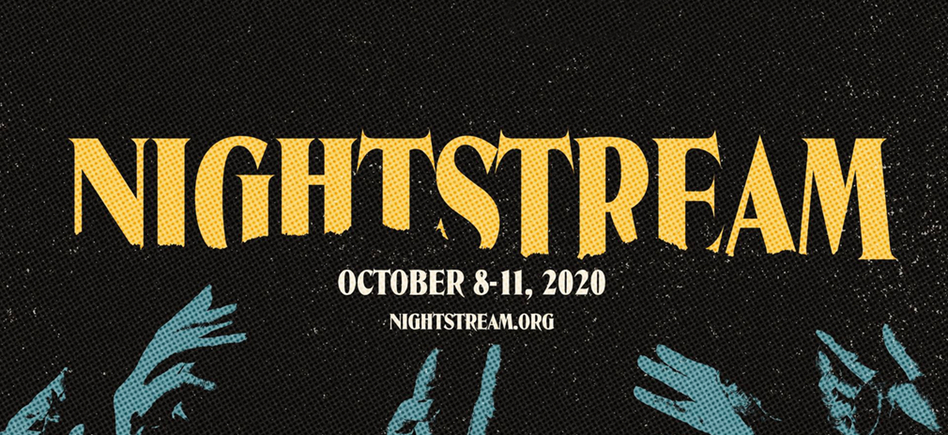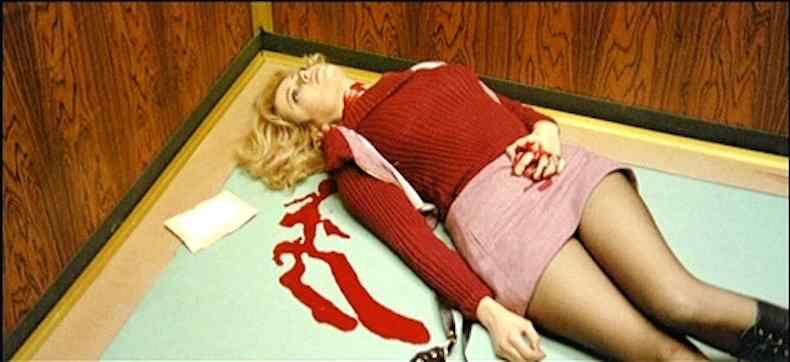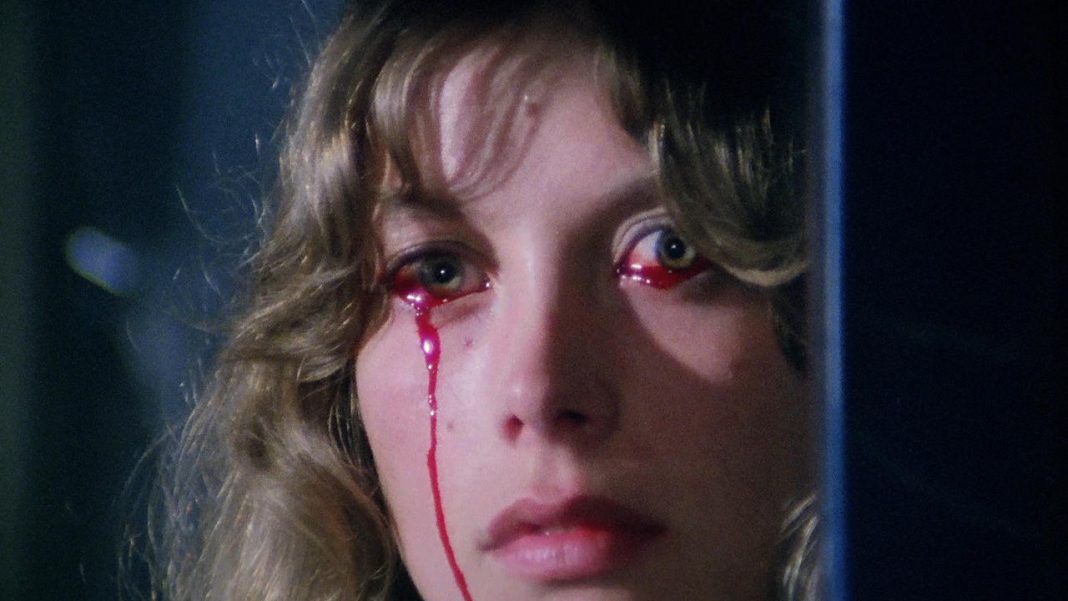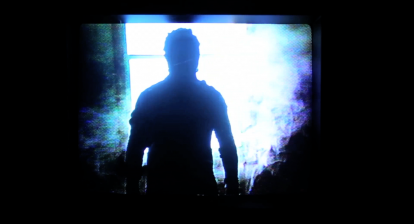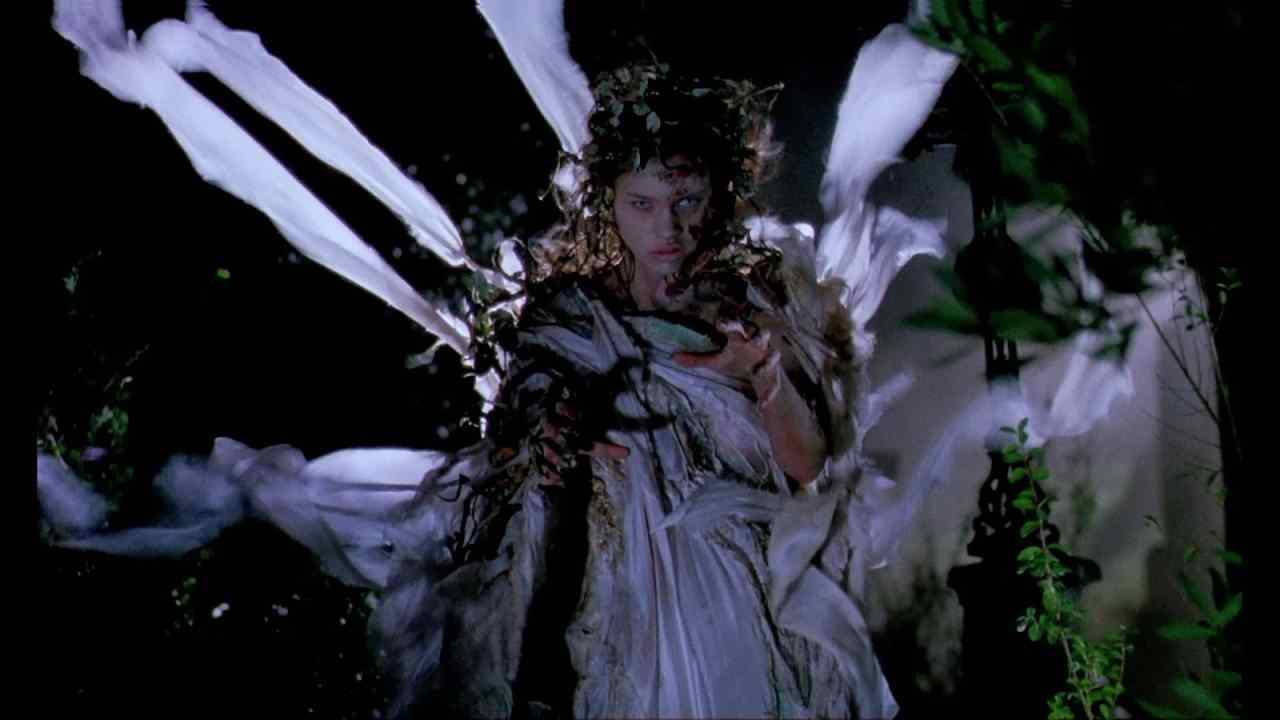The three sisters at the heart of Emanuela Rossi’s Darkness are something out of another era, with Peter Pan collared dresses and Gunne Sax style nightgowns, patiently waiting in the darkened hallway of their ramshackle mansion of a home. Candlelight flickers and plastic tarps rustle, announcing the return of their father (Valerio Binasco), full of fire and brimstone tales of an apocalyptic wasteland outside, a dusty rucksack full of rations and a gas mask at his feet.
The world he describes sounds utterly brutal, with bloodshed likely to erupt over something as simple as a loaf of bread, or a fresh peach. This dystopia is the reason for the girls’ confinement at home, the doors and windows sealed to keep out the burning sun, only males strong enough to brave the horrors outside. Instead, the girls follow a strict regiment of homework assignments and aerobics based “training”, the smallest bit of fresh air or light treated as an impromptu holiday when their father decrees it possible. 
Stella (Denise Tantucci) is the oldest of the siblings, and the default mother figure for her younger sisters. She would be off to the start of her own adulthood under normal circumstances, and she’s the only one old enough to remember what normal life was like, with cities outside and a mother who was still alive. Luce (Gaia Bocci) is heading toward puberty, and away from a little girl’s worshipful adoration of her father. Poor Aria (Olimpia Tosatto) is barely more than a toddler, mute, frail and without any of the energy one would expect from a rambunctious preschooler.
Shutting out the outside world doesn’t stop the girls from growing up, nor the traditional conflicts of autonomy that happen between teens and their parents. As their father flies into rages at the simplest of questions, and invents increasingly elaborate rituals and rules for the girls to follow, it’s very obvious that his version of caring is just a mask for abusive control. Whatever may or may not be happening in the larger world, he restricts his daughters from anything that might lead them away from his absolute authority, down to the very air they breathe.
It is clear from the first few minutes of Darkness that the unnamed father’s version of just about any event is wholly unreliable. He drinks, snarls and threatens his way through most interactions. The post-apocalypse also has a suspiciously steady supply of store bought cigarettes.
Also See: Seven Horror Movies You Didn’t Know Were Written by Women
Emanuela Rossi is clearly skilled as a director of actors, as all three of the young protagonists turn in lovely, nuanced performances in roles that by default don’t give them much action or a ton of dialog. Gaia Bocci as Luce is excellent in her first credited role, with a strong and naturalistic progression from dutiful daughter to a young woman unafraid to question the inconsistencies in her father’s stories and behavior.
Visually, Darkness makes the most of the literal darkness that cloaks its isolated setting. Marco Graziaplena’s cinematography finds some fantastic ways to highlight and frame what light there is, from a strategic crack in the boarded up window or the hydroponic lamps the girls are using to attempt to grow plants. Emanuela Rossi also finds creative ways to visually emphasize the film’s themes. The sisters sit under a sunlamp in their bathing suits like hothouse flowers, daydreaming of better days of lakeside trips and Coca Cola in their cups. Allowed a tiny bit of air and light, the girls twirl in tandem in bulky “protective” gear, physically celebrating what they can barely see or feel.
Also See: Brea Grant Thinks It’s Time Older Women’s Stories Were Told [Interview]
Where Darkness stumbles is its script. It’s not subtle in its narrative or its allegory. It’s clear within the first few minutes of the film that the unnamed father’s stories are near entirely invented to suit his own aims. With his leering interest in if the younger girls are growing and lengthy speeches about women “not fearing God”, its obvious that this is complex child abuse rather than some bizarre dystopian future. In case the blunt symbolism of the girls’ names wasn’t enough, there’s also fantasy illustration title cards that announce the salient points of each segment of the movie.
Without any real mystery behind its surface genre trappings or its themes of religion and patriarchy stunting female agency, the only real question is precisely how Stella and her sisters will realize the truth of the matter and escape.
Also See: The Top 11 Months to Celebrate Women in Horror Now That February Has Ended
While visually accomplished, and full of very credible performances, there’s a frustrating familiarity to the larger thematic and narrative elements that Darkness‘ strengths can’t quite paper over. From Flowers In The Attic‘s religious hypocrisy, The Handmaiden’s Tale‘s take on dystopia fueled by fear of female agency to a dash of the infectious paranoia of 2007’s Bug, it mixes a colorful palette of influences into an unfortunately neutral final result.
Darkness is Emanuela Rossi’s first feature length effort, which may explain why it is a bit reserved in fully exploring the contours of its premise. That said, her confident hand in visual set pieces, guiding strong performances from her cast and fiercely feminist views are a hopeful signpost for what her next attempt might bring to light.
WICKED RATING: 6/10
